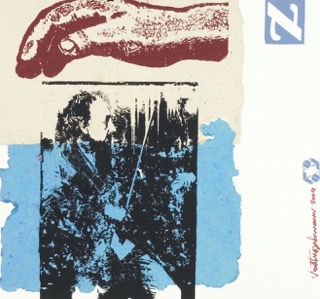Memory and Testimony: the Fragility of the Narrative in O que os cegos estão sonhando?, by Noemi Jaffe
DOI:
https://doi.org/10.17851/1982-3053.10.18.45-59Keywords:
Memory, Testimony, ShoahAbstract
Since World War II, much has been written about the Shoah, crime against humanity perpetrated by the nazis. Even if the word “much” suggests quantity, the experience lived collectively during the war is a handful of individual experiences that, inciting several stories, will never tire. The book O que os cegos estão sonhando?, with the Diary of Lili Jaffe (1944-1945) and the final text of Leda Cartum, written and organized by Noemi Jaffe, extrapolates the limits of classification. The traumatizing reminiscences of the Auschwitz survivor, of life after war, the rebuilding and the hope, surpasses the book. A testimony that retreats to the past to afirm life in the present of three generations of women. This article intends to analyze the book, in particular, the report of Noemi Jaffe, tracing observations about the models of narrative composition, of the multiplicity e and the fragmentation, reflecting on the Shoah, a complex subject that is indispensable to the literary studies of contemporaneity.
Downloads
References
CALVINO, Italo. Seis propostas para o próximo milênio. Trad. Ivo Barroso. Companhia das Letras, 1990.
GAGNEBIN, Jeanne Marie. Lembrar escrever esquecer. São Paulo: Editora 34, 2009.
GAGNEBIN, Jeanne Marie. Limiar, aura e rememoração: ensaios sobre Walter Benjamin. São Paulo: Editora 34, 2014.
JAFFE, Noemi. O que os cegos estão sonhando?: com o Diário de Lili Jaffe (1944-1945) e texto final de Leda Cartum. São Paulo: Editora 34, 2012.
KUPERMANN, Daniel. A “desautorização” em Ferenczi: do trauma sexual ao trauma social. Cult. São Paulo: Bregantini, ano 18, n. 205, set. 2015.
LEVI, Primo. Os afogados e os sobreviventes. Trad. Luiz Sérgio Henriques. São Paulo: Paz e Terra, 2004.
NASCIMENTO, Lyslei. Ver: Shoá – o romance e a enciclopédia em David Grossman. In: LEWIN, Helena (Coord.). Judaísmo e globalização: espaços e temporalidades. Rio de Janeiro: 7Letras, 2010. p. 205-210.
SELIGMANN-SILVA, Márcio. Apresentação da questão: a literatura do trauma. In: SELIGMANN-SILVA, Márcio. (Org.) História, memória, literatura: o testemunho na era das catástrofes. Campinas: Editora da Unicamp, 2003.
WALDMAN, Berta. A memória vicária em Ver: amor, de David Grossman. In: WALDMAN, Berta; KIRSCHBAUM, Saul (Org.). Ensaios sobre a literatura israelense contemporânea. São Paulo: Humanitas, 2011. p. 187-202.
Downloads
Published
How to Cite
Issue
Section
License
Os direitos autorais pertencem exclusivamente aos autores. Os direitos de licenciamento utilizados pelo periódico é a licença Creative Commons Attribution 4.0 (CC BY 4.0): são permitidos o compartilhamento (cópia e distribuição do material em qualquer meio ou formato) e adaptação (remix, transformação e criação de material a partir do conteúdo assim licenciado para quaisquer fins, inclusive comerciais.






